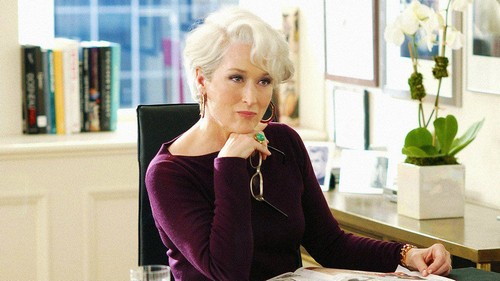It’s not just that women earn less on average from being shoveled into generally lower paying industries, being economically punished for being the only sex that can bear children, and are therefore unlikely to see economic gender equality for another 200 years.
It’s not just knowing that your body weight can affect your ability to get jobs and promotions, and that you’re likely to earn less as a result of not being slim. And it’s not just the normalcy of every day sexism and sexual harassment.
The odds are already stacked against us.
We also live in a world where having just one woman on the board or senior management team of a company is seen as “progress.” (Indeed, it’s hard to argue this when some companies have yet to appoint a woman to their board.) We know that for every 100 men promoted to manager positions, only 77 women are promoted, and that women are more likely to take a top spot in a revolving door capacity, filling positions previously taken by a woman.
Is it any wonder then, when a woman breaks even partially through the glass ceiling, she’s classified as a Queen Bee?
When starting out at work, you’re told as a woman that being a Queen Bee is a good thing. You’re a champion, you’re a leader, you’re the one who managed to defy the odds, who managed to get ahead in a man’s world and outshine the other women competing for the recognition. You’re taught very early on that there are finite spots for you to fill, so “well done you”, when you actually become senior.

Maybe it’s all a way of distracting women from questioning why there are so few positions available to women in a senior role in the first place.
Queen Bee is a toxic term used mainly by women
The Queen Bee descriptor, on its face, sounds empowering. You want to make it big? Be a Queen Bee. Be ruthless, be cutthroat, and don’t forget to kick the ladder down once you’ve reached the top.
But the Queen Bee reputation is harmful to women, whether we embody the concept or not. When we behave like Queen Bees, we insinuate that everyone beneath us is a minion doing our bidding. It suggests dictatorship, not team work. It suggests we reign over (and probably eat) our young. It gives colleagues a new, more-suitable-for-work way of calling a female leader a bitch.
Perhaps worst of all, it perpetuates whatever tendency there is for women to hate other women in the workplace-it heightens their mistrust and reinforces the idea that succeeding means looking out for number one and sabotaging everyone else competing for your slot.
But lastly, if you’re not like that, and you’ve succeeded anyway, you’ll struggle to be given the benefit of the doubt that you’re not the stereotypical Queen Bee.
The foundations are in place to make women fight against one another
Long before I became anyone’s boss, I told myself that I would never fall into the trap that I saw some of my female peers fall into, of attacking or sabotaging other women, or as studies show, socially excluding or bullying co-workers, instead of questioning the systemic bias. I gritted my teeth, endured being a verbal and emotional punchbag, worked hard, learned, and trained on what I could do to bring the best out of people, all the while determined to stay as positive and inclusive as possible.
But would it all be for naught?
In a study published in the journal Gender in Management, researchers determining whether gender plays a role in women’s preferences for bosses found that “females believed that other women are good managers, but the female workers did not actually want to work for them.”
The study explains: “The results may have some basis in females’ perceptions of female managers as being high in dominance. The female manager was also seen as being emotional. More specifically, the female manager was seen as being more nervous and more aggressive than a male manager.”
That aggression, when referred to in women, is frequently described with words like “bossy” and “bitchy.” The terms have become so engendered that Benjamin Schmidt, an assistant professor of history at Northeastern University who teaches a class on reading digital history, data-mapped the words used to describe professors at the top of their fields, based on more than 14 million teacher reviews on RateMyProfessor.com. If you type in words like “bossy” or “bitchy” in Schmidt’s interactive chart, it’s perhaps unsurprising that those words were applied more frequently to women than men.
Facebook COO Sheryl Sandberg famously highlighted how “bossy” women are more likely to face consistent pushback and lose out on promotions, findings confirmed in various studies and surveys. She even started a campaign to ban the word “bossy”-encouraging girls and women to not be afraid of being assertive.
However, it can seem a bit futile if women don’t believe in the cause themselves.
Embracing gender equality
It doesn’t have to be this difficult.
Some companies that have nurtured a better culture with equality between male and female workers have translated this parity into a happier workforce and, in turn, greater productivity, according to the Journal of Economics and Management Strategy. That productivity also translated into higher revenue (pdf) at firms with a better gender split.
Achieving parity requires companies to monitor, spot, acknowledge, and work on solutions to remove as much bias as possible from the workplace. That would allow women fairer opportunities at work, which would then remove the toxic environment of pitting women primarily against each other.
But it also requires self-reflection on our own biases that can consciously or subconsciously shape our behavior toward one another and keep women in their own vicious circle of inequality. Until we acknowledge that together we are stronger and better, we’ll forever be waiting for equality from a system that thrives on our mutual sabotage.


